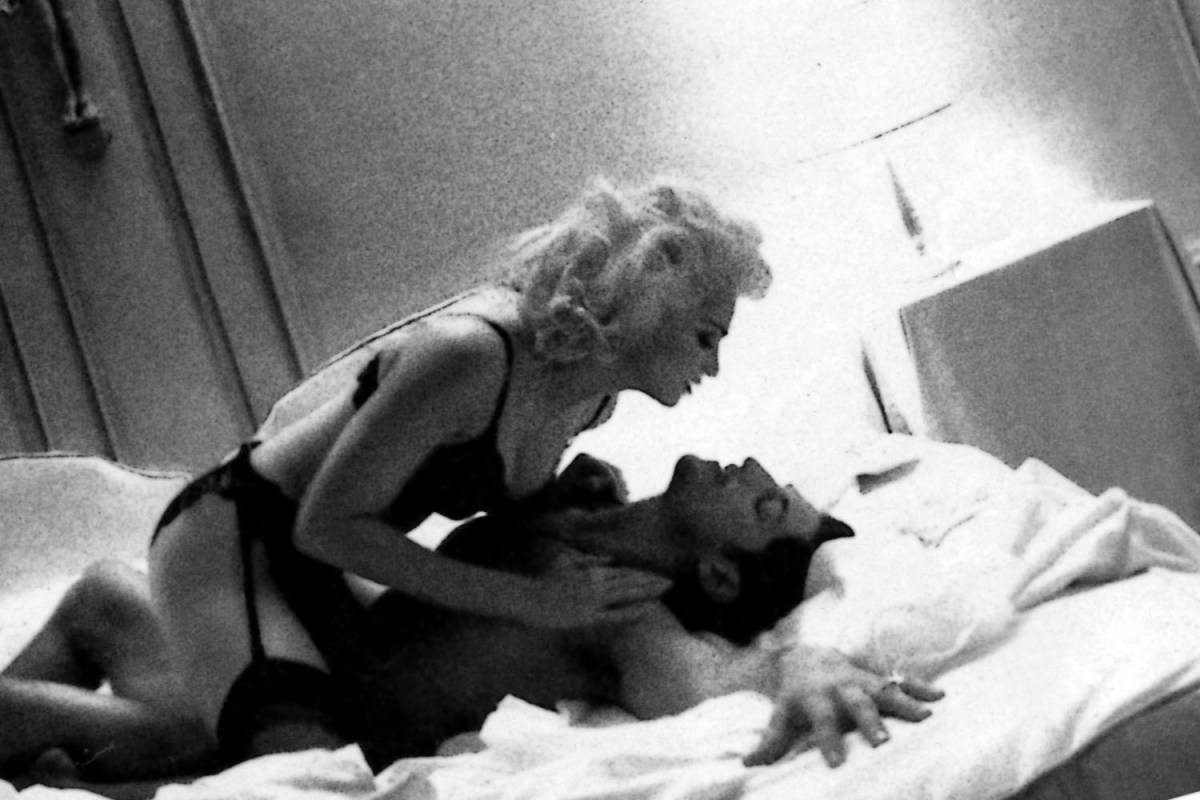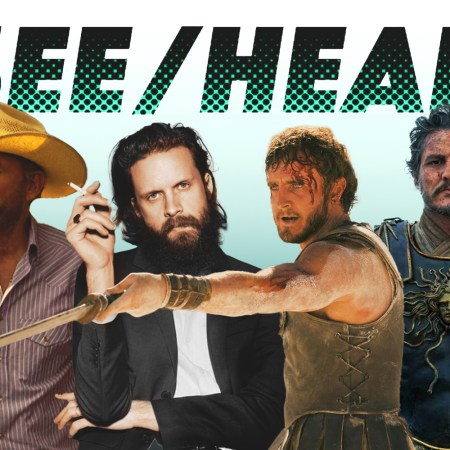You know you’ve hit a nerve when a member of Black Sabbath finds your song disgusting.
“WAP” might be the song of 2020, but the Cardi B/Megan Thee Stallion collab has plenty of pearl-clutching detractors, from Ben Shapiro to Geezer Butler, aka the bassist for Black Sabbath, the seminal heavy metal band which had major success with songs featuring Satanic imagery and talking about their, uh, massive consumption of cocaine.
“Whatever new music comes out, it’s viewed as the devil’s music,” as Butler told the U.K. metal magazine Kerrang. “It happens with every new wave of music. Like metal, obviously … And then when rap came about, people were up in arms about that and certain words that rappers were using. I have to say, though, that Cardi B pisses me off with that WAP song. It’s disgusting! But there you go.”
Double standard? Sure, but that’s nothing new, particularly if you’re a woman and/or POC. In fact, it was 30 years ago this month that Madonna released “Justify My Love,” a breathy trip-hop single co-written by Lenny Kravitz and Ingrid Chavez that was fairly PG in its lyrics but broached sadomasochism, androgyny and bisexuality in its accompanying video … which, of course, was banned (this all during the time when metal bands could pretty much treat women as literal objects in their own videos).
Given the anniversary — it’s also 30 years since 2 Live Crew’s own obscenity brouhaha, which we’ll cover below — we thought we’d look back at the songs, performances and videos that have scandalized the world over the years, and determine how they’d fare in 2020. (That “shocking” Madonna clip? Feels like an art film in today’s climate.)
1957: Elvis Presley shakes his hips
In 1957, the “Hound Dog” singer was told to stop suggestively shaking his hips, which had earned the singer the nickname “Elvis the Pelvis”; the Vice Squad even taped him during a follow-up performance.
What they said then: “I just get kinda in rhythm with the music. I jump around to it because I enjoy what I’m doin’. I’m not tryin’ to be vulgar, I’m not tryin’ to sell any sex … I just enjoy what I’m doin’ and tryin’ to make the best of it.” — Elvis Presley in TV Guide
What they’d say now: Elvis became a Nixon fan and, as Black Sabbath’s Butler noted in his recent interview, “Everybody said [Elvis] was Satan. And then in the ‘60s and ‘70s he became America’s national treasure.”
1967: The Rolling Stones can’t spend the night
Mick Jagger & Co. were all set to appear on Ed Sullivan’s TV show for the fourth time when they were asked to amend a lyric. They couldn’t spend the night together — instead, the hit song now suggested “let’s spend some time together.”
What they said then: Jagger rolled his eyes during the new lyric and slipped in the original chorus (or mumbled it). They sort of got away with it, and a year later, Jim Morrison refused to play along with a similar G-rated suggestion for “Light My Fire” and never appeared on the show again.
What they’d say now: The sleepover is fine. Mick’s a bit insistent to his partner, but as far as consent goes, the pleas are less problematic than “Baby, It’s Cold Outside.”
1969: Jim Morrison (maybe) exposes himself
The Doors singer was arrested after a Florida concert where apparently he was even more exuberant than usual. Some say he unzipped his pants and flashed the crowd; the band itself says he never did it.
What they said then: The singer was sentenced to six months in jail, but died while appealing his conviction.
What they’d say now: Time … zips up all pants? Morrison posthumously received a full pardon in 2010. (At some point, maybe we’ll all apologize to Janet Jackson.)
1972: Chuck Berry plays with toys
The rock-and-roll legend scored an unlikely chart topper with this live cover of a 1952 novelty song built on double entendres.
What they said then: British conservative activist Mary Whitehouse wrote the BBC and scolded, “One teacher told us of how she found a class of small boys with their trousers undone, singing the song and giving it the indecent interpretation which — in spite of all the hullabaloo — is so obvious.” Also, a few radio stations refused to play it.
What they’d say now: Chuck Berry’s only no. 1 hit was this?
1985: Dead Kennedys scare parents with art, not words
Incendiary, often funny Bay Area punks Dead Kennedys got in trouble for the “Penis Landscape” artwork by H.R. Giger included within their 1985 album Frankenchrist.
What they said then: Lead singer Jello Biafra was one of two people arrested for “distribut[ing] harmful material to minors.” Nine police officers stormed into Biafra’s apartment and demanded to know Giger’s whereabouts (he lived in Switzerland).
What they say now: “We were the first people to be prosecuted over an album in American history,” Biafra told Quartz. The singer, acquitted, built a strong spoken word career off of the controversy.
1984: W.A.S.P. leads to the P.M.R.C.
The shock-rock band’s first single — “Animal” (Fuck Like a Beast)” — was actually pretty difficult to find upon release, although the codpiece/buzzsaw cover is hard to forget.
What they said then: Thanks to the song’s graphic depictions of sex (sample lyric: “I’ll nail your ass to the sheets/A pelvic thrust and the sweat starts to sting ya/I fuck like a beast”), the band — which might be an acronym for “We Are Sexual Perverts” — landed in the crosshairs of Tipper Gore and the Parents Music Resource Center (PMRC), ranking on among the group’s notorious “Filthy Fifteen.” Warning labels on records? Yeah, you can thank the PMRC for those.
What they’d say now: Turns out those “evil” metal singers were either well-spoken and funny teetotalers (Dee Snider) or soon to turn their backs on their past (WASP’s Blackie Lawless is now a Christian and won’t perform his infamous song).
1989: 2 Live Crew get As Nasty as They Wanna Be
The Miami hip-hop group spent three years dealing with the fallout of their breakthrough (and admittedly juvenile) album, As Nasty As They Wanna Be, which sparked a years-long feud with lawyer Jack Thompson.
What they said then: A record-store owner and the members of the hip-hop group were arrested for selling the record and performing songs like “The Fuck Shop” live; Thompson (later disbarred) spearheaded likeminded campaigns against NWA and, later, the video game Grand Theft Auto.
What they’d say now: Respect? 2LC mastermind Luther Campbell is now a family man, an ardent football supporter and considered the grandfather of Miami bass; his legal journey, which continued up to the Supreme Court (that one was for a sample, not obscenity), actually inspired the formation of the organization Rock the Vote.
1992: Ice-T isn’t fond of police officers
Hip-hop legend Ice-T surprisingly started a metal outfit in the early 90s; the first release by Body Count was dark, sometimes funny (“Evil Dick”) and offered up a first-person narrative called “Cop Killer” that totally didn’t cause a huge overreaction.
What they said then: With the Rodney King verdict (name-checked in the song) still fresh in everyone’s mind, this one went down hard. President Bush called it out and law enforcement agencies, actor Charlton Heston and various shareholders were able to pressure the record label to remove the track … which was replaced by a Jello Biafra screed on first amendment rights.
What they’d say now: This one would certainly cause a similar reaction today, although Ice-T going on to a lengthy career as a police officer on Law & Order: SVU suggests people forgot about this song pretty quickly.
1997: The Prodigy warp perception
The English electro-rock band The Prodigy scored a huge breakthrough in 1997 with their track “Smack My Bitch Up”, eliciting both praise and scorn for its rather visceral, NSFW first-person video and mostly scorn for the endlessly repeated refrain “Change my pitch up/Smack my bitch up.”
What they said then: MTV banished the clip to late nights and included a warning; later, after pressure from the National Organization of Women, the video was shelved.
What they’d say now: The (somewhat gender subverted) violence in the video would probably merit less attention than the lyrical sample (which itself was altered from the original “”Switch up change my pitch up/Smack my bitch up, like a pimp”).
1999: Eminem debuts Slim Shady
The white Detroit rapper wrote a song about burying the body of his girlfriend, made fun of Dr. Dre’s alleged assault and slandered his mom. Plus, a lot of homophobia. That was just on his first major label album.
What they said then: Outside of his mother’s lawsuit and unrelated arrests … nothing negative. Eminem did just fine. The album won a Grammy.
What they’d say now: Mr. Mathers’s ability to shock has waned. That said, Eminem’s still capable of a few great singles and that Biden ad with “Lose Yourself” is fire.
This article was featured in the InsideHook newsletter. Sign up now.
























